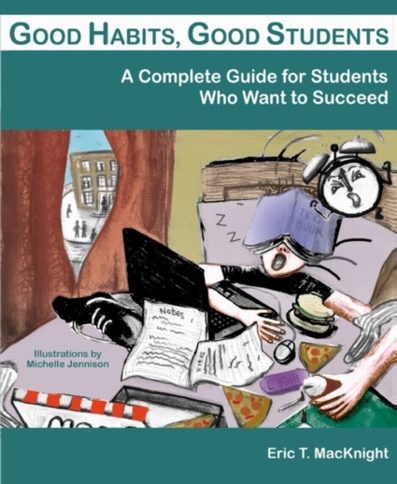Let’s face it: in the beginning, we may be filled with enthusiasm and determined to succeed. But as the days and weeks go by, our old tendencies begin to reassert themselves.
Do it the easy way.
Be a little bit lazy.
Take a break.
Do it tomorrow.
And before we know it, our grand plans for improvement have been forgotten.
This is when we need help from others.
Parent Power: Nagging Reminding
Do you ever wish your parents would stop nagging you? “Clean your room! Help with the dishes! Take out the garbage!” It never ends.
You may be surprised, then, at what I am about to say. If you are serious about improving your habits but find that you need help, here’s the best thing you can do:
Ask your parents to nag you.
Actually, nagging means being reminded of things you would rather forget. In this case, we are talking about things you want to remember. So maybe we should call it reminding, not nagging.
Perhaps you want to acquire the habit of reading every day. You set a goal to read for 15 minutes every day, and for the first day or two everything is fine. But then you start forgetting.
Ask your parents to remind you. Tell them what your goal is, and put that parent power to work on your side.
Organization
Parents can also help with organization. Maybe a wall calendar would help you keep track of your goal-setting activities and important due-dates. Perhaps your mother or father can help you to arrange a schedule that will work for you. Are you being disturbed by your little sister when you’re trying to do homework? Do you need a better place to study?
Don’t try to solve all of these problems yourself. Put your parents to work!
Not only will your parents be able to help you reach your goals—they will also be happy about it. They will be delighted that you are improving your habits, setting goals, and becoming organized.
They might even stop nagging you so much.
Teachers: Error Detection
Teachers can sometimes be too negative. They fall into that trap because it is so much easier to explain what’s wrong with your work than it is to say what’s right about it. They are very good at pointing out errors and mistakes.
You can use your teachers’ error-detection talents to help you build good habits. My advice here is similar to asking your parents to nag you:
Ask teachers to tell you when you’re messing up.
You may think this is crazy advice, but let me explain.
Even though they spend all day pointing out errors, teachers usually don’t enjoy being so negative. They feel guilty.
You can relieve your teachers’ guilty consciences by asking them to point out your errors. “Imagine!” they will think, “a student who actually wants to hear bad news!” They will be so happy to be able to do what they do best, without feeling guilty. And I want to point out that a happy teacher is usually a nice teacher. A sympathetic teacher. A teacher who, hesitating between a higher mark and a lower mark, might just choose the higher one.
You’re beginning to see the strategy here, right?
Teachers are busy people, of course, so you don’t want to annoy them by adding unnecessarily to their workload. Instead, make it easy for them. Use the Daily Check Sheet, for example (see Appendix A). Pick one class where you need to improve when it comes to homework, and ask the teacher if he or she would be willing to take 30 seconds at the end of each lesson to fill in your sheet. Most teachers, impressed that you have taken this initiative by yourself, will be pleased to help. Do this for a week, and then ask the teacher’s advice. Should you continue with the Daily Check Sheet for another week? Are there areas where you need to improve that the sheet doesn’t mention?
Letting teachers know that you are working to improve your habits will improve their attitude toward you. Once you have gained their trust—once they see that you are committed to improvement—they will be much more willing to spend extra time helping you.
Show them this book, and ask them for their ideas. Where do you need to improve the most? What can you do to improve your test scores, or write better essays, or improve your reading skills? Put your teachers to work for you, and, just like your parents, they will be happy to help.
Expert Information and Advice
Teachers—and school librarians, too—can also help by answering questions about nutrition, sleep, exercise, and the scientific evidence regarding study routines.
They can help you . . .
- find good books about study skills;
- find good novels to read that are right for your reading level and personal interests; and
- find other books, internet sites, etc., that will allow you to explore your interests in science, history, mathematics, automobile mechanics, or wherever else your nose leads you.
As one of my own teachers said to me, “The school is a cow—milk it!”
There may be other adults you could call on as well—a school counselor, perhaps, or a grandparent, or a neighbour. Don’t be afraid to ask—most people will be happy to help.

